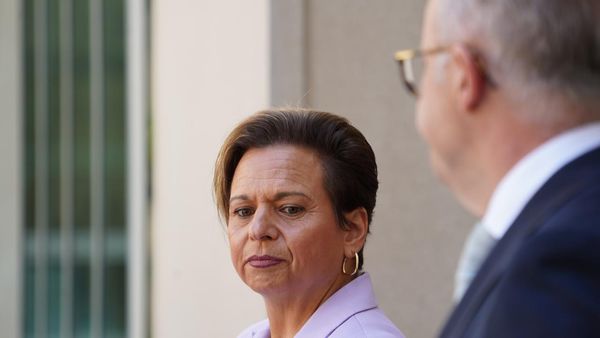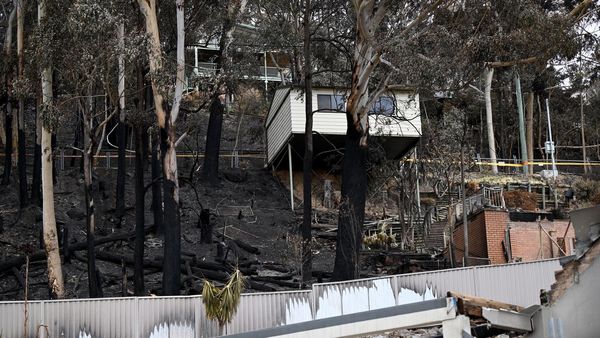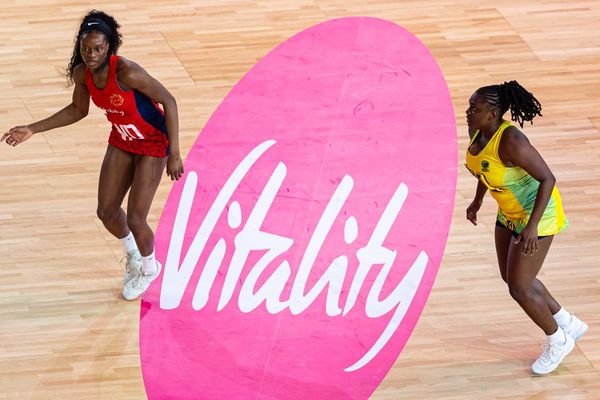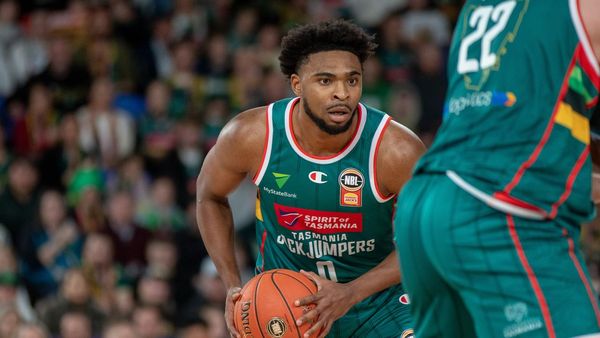
For months, Rory McIlroy walked the ramparts of the PGA Tour fortress, besieged by the Saudi-funded LIV Golf. He and other holdouts spoke about staying true to the PGA's traditions, even as their peers accepted millions and millions of dollars in incentive money and guaranteed payouts to join its rival.
Now, McIlroy says, he feels like "a sacrificial lamb," after the PGA Tour made a deal to merge with LIV Golf's backers, the Saudi sovereign wealth fund.
That's not all he's feeling: McIlroy, ranked the world's No. 3, still sees LIV Golf as the enemy.
"I still hate LIV. Like, I hate it. I hope it goes away and I will fully expect that it does," he said.
If he sets his personal feelings aside, McIlroy acknowledged, the deal might prove to be a good thing for pro golf. But he also said many details still need to be worked out — from how to compensate golfers who stuck with the PGA, to how to handle pros who want to return from LIV.
PGA players are "furious"
"Players on the PGA Tour are furious," after standing on principles and refusing to accept Saudi money, Brendan Porath, co-host of The Shotgun Start golf podcast, told NPR this week.
"Rory McIlroy passed up an upfront sum of, it could have been $400-$500 million, because he did not like where the money was from and he wanted to defend the status quo," Porath said.
When McIlroy spoke to reporters on Wednesday ahead of the Canadian Open, many were eager to hear his comments about the blockbuster merger between the PGA Tour, Europe's DP World Tour and Saudi Arabia's Public Investment Fund.

A players' meeting after the announcement was "heated," McIlroy said in Toronto. In public remarks, several players are airing frustrations with the secrecy of the deal.
"Nothing like finding out through Twitter that we're merging with a tour that we said we'd never do that with," golfer Mackenzie Hughes said.
Not every player is furious. Padraig Harrington, a PGA loyalist who recently revealed he turned down a chance to join LIV, welcomed news of the merger. While he was surprised the deal came together so quickly, Harrington said, the PGA Tour was right to act, as pressure on the tour would have continued to build.
"Definitely in the financial interest of both sides," he said. "Definitely in the financial interest of the players even though some of those who gain will feel like they're losing."
LIV's ties to Saudi money are a flashpoint
"Critics accuse the LIV players of taking blood money due to the Saudis' abysmal human rights record," as NPR's Tom Goldman reported after LIV Golf launched last summer.
Detractors cite Saudi Arabian nationals' prominent role in the terrorist attacks of Sept. 11, 2001, and the U.S. assessment that Saudi Crown Prince Muhammad bin Salman approved the operation leading to the brutal murder of journalist Jamal Khashoggi in 2018.
The merger fed accusations of "sportswashing" — that the PGA Tour is allowing a wealthy and oppressive regime to improve its global image not by atoning for its misdeeds, but by attaching itself to pro golf.
Many are also calling PGA Tour Commissioner Jay Monahan a hypocrite, noting that he said one year ago, "I think you'd have to be living under a rock to not know there are significant implications" to players aligning themselves with Saudi Arabia.
The Canadian Open is this week. Here is what PGA Tour Commissioner Jay Monahan said at that event one year ago. pic.twitter.com/CtmnK74kbd
— Brendan Porath (@BrendanPorath) June 6, 2023
Invoking families who lost loved ones on 9/11, he added, "I would ask any player that has left or any player that would ever consider leaving, have you ever had to apologize for being a member of the PGA Tour?"
When asked about those comments, McIlroy stated, "I said it to Jay yesterday: 'You've galvanized everyone against something, and that thing that you galvanized everyone against, you've now partnered with.' "
LIV's defenders say critics are holding the outfit's deep-pocketed sponsor to an ethical standard they don't use either for other sports or for other entities — such as governments — that do business with Saudi Arabia. They also say pro golfers should be allowed to play where they want, without fearing punishment from the PGA Tour.
Harrington acknowledged the criticisms, but he also said he hopes that including the Saudi fund could help open avenues for change.
"Yes this is sports washing and yes unfortunately it proves sports washing works," the Irish golfer said via Twitter. "But maybe one positive, inclusion and trade has shown to improve and change countries involved for the better.
"My own country thought it was acceptable to lock up unmarried mothers as late as 1996," he added.
The war may be over, but battles remain
When LIV Golf teed off last June, the PGA Tour immediately suspended 17 LIV players, including Phil Mickelson, Dustin Johnson and Kevin Na. That didn't stop other top talents from leaving, including Brooks Koepka and Bubba Watson.
For a sense of how deep and wide golf's divide is, consider what retired golfing great Jack Nicklaus said last week, when asked about PGA tournaments barring top LIV players such as reigning PGA Championship winner Brooks Koepka and British Open winner Cameron Smith.
"I don't even consider those guys part of the game anymore," Nicklaus said. "I don't mean that in a nasty way," he added.

The new deal could bring out more ire, and not only for golfers at the top of the rankings like Scottie Scheffler, Jon Rahm and McIlroy, who missed out on lucrative paydays. If golfers who defected from the PGA are allowed to return, they could crowd out golfers on the tour's lower rungs.
For context, LIV opened its current season with 48 players, on 12 four-person teams. The PGA Tour would struggle to absorb them all, as it reserves tour cards for the top 125 players from each year, although golfers get exemptions and other chances to enter tournaments. Overall, the FedEx Cup standings currently list 233 players.
"There still has to be consequences to actions," McIlroy said. "The people that left the PGA Tour irreparably harmed this tour, started litigation against it. Like, we can't just welcome them back in. That's not going to happen."
When he was asked whether players who stayed should be made financially whole, McIlroy didn't hesitate.
"I mean, the simple answer is yes," he said. "The complex answer is, how does that happen?
That's just one of many details that are not yet known, including how much self-direction the PGA Tour will be able to maintain, and what pro golf will look like.
LIV Golf sought to transform how people watch pro golf, whose hushed tones have accompanied many an afternoon nap. Instead, LIV offered a louder, faster, made-for-TV product. Its tournaments stand apart with their aspect of team play and shotgun starts, in which players tee off on different holes simultaneously.
The rancor around the rift — and now, around the merger — suggests the sport still has some ways to go to heal itself and achieve the global success that Monahan and others in the deal say is now within their grasp.







